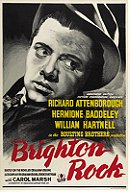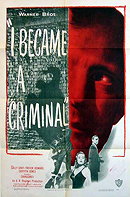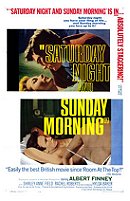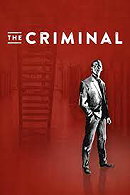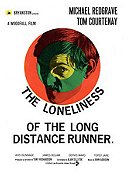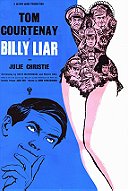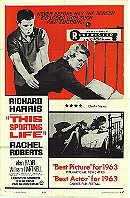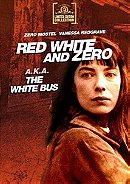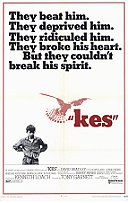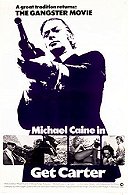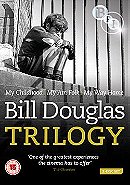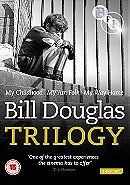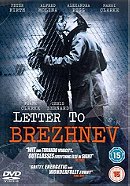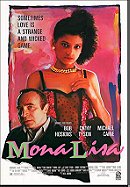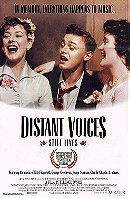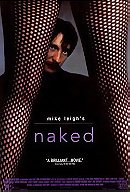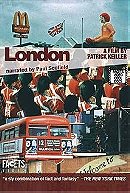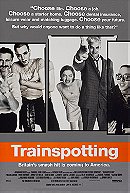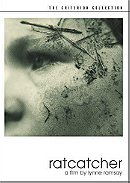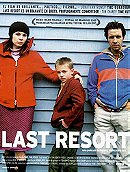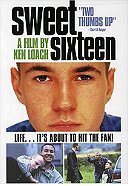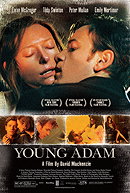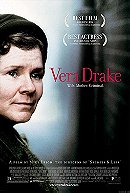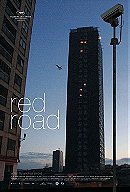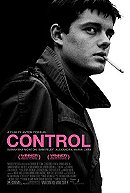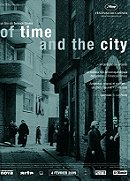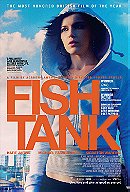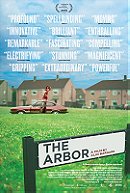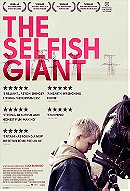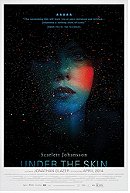Gritty Post-war Britain: A Film Selection
Sort by:
Showing 35 items
Decade:
Rating:
List Type:
Here is a chronological list of many notable post-war films centred on working class life, from which i'm making a selection of "essentials" and recommendations
1947 It Always Rains on Sunday
Brighton Rock
They Made me a Fugitive
1949 Blue Scar
The Last Days of Dolwyn
1950 Night and the City
1953 O Dreamland
Trouble in Store
1956 Together
1957 Momma Don't Allow
1958 Look Back in Anger
1959 Room at the Top
Sapphire
We are the Lambeth Boys
1960 Saturday Night and Sunday Morning
The Criminal
Shelagh Delaney's Salford
1961 A Taste of Honey
1962 A Kind of Loving
The Loneliness of the Long Distance Runner
1963 Billy Liar
This Sporting Life
1964 A Hard Day's Night
1965 Up the Junction
1966 Cathy Come Home
1967 The White Bus/Red White and Zero
Poor Cow
1969 Kes
Bronco Bullfrog
1970 Leo the Last
1971 Ten Rillington Place
Get Carter
1972 The Other Side of the Underneath
My Childhood(Bill Douglas' autobiographical masterpiece, first in a trilogy)
1973 My Ain Folk
1975 Pressure
1978 My Way Home
1979 Scum
1980 Radio On
The Long Good Friday
1981 Burning an Illusion
1982 Made in Britain
1985 My Beautiful Laundrette
Letter to Brezhnev
1986 Handsworth Songs
Rita Sue and Bob Too
1988 Distant Voices Still Lives
The Last of England
High Hopes
Girl from the South
The Raggedy Rawney
1990 Oranges are not the Only Fruit
The Krays
1991 Riff Raff
Life is Sweet
Young Soul Rebels
1993 Naked
Raining Stones
1994 London
Ladybird Ladybird
1995 Secrets and Lies
Butterfly Kiss
1996 Trainspotting
Small Deaths
Brassed Off
Small Faces
1997 Nil by Mouth
Twin Town
My Name is Joe
1998 Orphans
Human Traffic
1999 Wonderland
Ratcatcher
The War Zone
East is East
2000 Billy Elliot
Last Resort
2002 24 Hour Party People
Sweet Sixteen
All or Nothing
Once upon a Time in the Midlands
Morvern Callar
2003 Young Adam
2004 Dead Man's Shoes
Ae Fond Kiss
Vera Drake
2006 Red Road
London to Brighton
2007 Control
This is England
2008 Summer (Glenaan)
Somers Town
Of Time and the City
Better Things
2009 Fish Tank
Down Terrace
2010 The Arbor
Robinson in Ruins
Made in Dagenham
2012 The Poor Stockinger, the Luddite Cropper and the Deluded Followers of Joanna Southcott
2013 Under the Skin
The Selfish Giant
~
There has long been a class war conducted by the powerful in Britain. So it is natural that "social realism", addressing the lives of the working and under class, would become a strong identifying feature of British cinema. Precursors can be found not only in the 50s Free Cinema movement (e.g Lindsay Anderson's O Dreamland), but in "Angry Young Men" plays and literature, "noirish" 40s films (e.g It Always Rains on Sunday, They Made me a Fugitive), and the earlier documentaries of Grierson (Drifters), Cavalcanti (Coal Face) and Jennings (Fires were Started). "Kitchen sink" dramas were prominent in the short-lived early 60s New Wave: when in Billy Liar, adventurous Julie Christie sets off for London leaving Billy behind, it was as if the Swinging Sixties were not the ideal place for social realism. Nevertheless, Ken Loach, consistent voice of social conscience for the period since, made a name for himself with the landmark TV drama on homelessness, Cathy Come Home, followed up in 69 by the ever popular Kes.
Having focused on the working class with Free Cinema documentaries and This Sporting Life, Lindsay Anderson switched settings to effectively attack the establishment and capitalism in If (1968) and O Lucky Man (1973), while Joseph Losey's The Servant (1963) turns the tables on the upper classs in their own environment. The highlight of the 70s, a decade of thin pickings in British cinema generally, was Bill Douglas' autobiographical trilogy, beginning with My Childhood. I've not seen Leo the Last (1970), in which John Boorman posits a European royal in London slums with radical consequences- something of a rarity in its approach. The 80s saw something of a resurgence of socially committed cinema, with the widescale unemployment and destruction of urban communities under Thatcher and her cronies.
Set in election year of 1992, Patrick Keiller's London is a lugubrious, disillusioned polemic- nevertheless underpinned by a gently romantic spirit- against the decay of decent values as much as of a city's soul, with the ongoing onslaught of capitalism, monarchy and Empire. It is an admirable film.
John Akomfrah's Handsworth Songs (1986) addresses the riots in that area of Birmingham, the high hopes of immigrants from the Caribbbean seen arriving years before dashed by racism, exclusion, low pay, poor housing and heavy handed policing. Along with Ken Loach, Mike Leigh (a director i'm not especially keen on) has been the genre's most famous exponent, championed by critic Ray Carney. In recent years i have been impressed with Andrea Arnold's Red Road and Fish Tank: her latest was an interesting, dark earthy version of Wuthering Heights. The literary tradition of Dickens, Hardy and Lawrence still carries weight, though i'm leaving out adaptations of such classics- strictly post-war settings-, striking historical films such as Douglas' magnificent Comrades, and several by another left-winger Peter Watkins.
While fine acting and integrity have categorised the better films, social realism may not be the sexiest or most formally innovative genre. There are inherent pitfalls: middle class voyeurism, wallowing in and aestheticising misery, condescension, gangster cool and glamourisation of violent crime (a whole line, beloved of lad mags, including Get Carter, Trainspotting and Guy Ritchie's dreadful projects), caricatures (Mike Leigh), reinforcing stereotypes, sentimentalising (Educating Rita), demoralising acceptance rather than promoting positive change. But at its best, social realism has given an important and credible record of the lives of, and to some extent a voice to, the poorer sections of society- maybe even a V sign on their behalf. Largely eschewing grand auteurist flourishes, there has still been some room for quietly poetic elements in depictions of less affluent areas, while films like Billy Liar, with its escapist visions, and The Other Side of the Underneath, with its hallucinatory anguish, have extended beyond the bounds of realism.
WAYS AHEAD?
Since the advent of Thatcher and her "no such thing as society", the working class has been divided, communities destroyed, children no longer playing together in the street. We have widespread scapegoating of ethnic minorities, foreigners and easy targets, the dominance of consumerism, mass unemployment and obesity, the betrayal by New Labour, and many falling easy prey to McDonalds and the propaganda of Murdoch and the Mail.
Much as i admire Ken Loach's integrity and politics, his method, like much of the genre, has limitations; he has acknowledged the restricted impact of cinema and what he can achieve. He has concentrated on social realism, to show the worth of individual lives at the bleaker end of society. Thinking of If, The Servant, and Bunuel, there is need too for more satire and subversion further up the social scale. Too often British representations of the middle and upper classes have been cosy and comfortable.
What i would hope for now is a greater interest in experimentation, a range of cinematic forms to not only depict dour and gritty life (which the all-too callous middle and upper classes generally hold in contempt, a sign of inferiority, not a call to conscience, anyway) but to bring in wider social and international comparisons; to challenge the status quo and also offer solutions. With no loss of integrity, we can have celebration, wit, colour, vitality, love, solidarity, contemplation, poetry, uplift, montage, dynamism, satire, wide-ranging political bite and a molotov cocktail.
~
LINDSAY ANDERSON: en.wikipedia.org/wiki/Lindsay_Anderson
KEN LOACH: en.wikipedia.org/wiki/Ken_Loach
BILL DOUGLAS: en.wikipedia.org/wiki/Bill_Douglas
MIKE LEIGH: en.wikipedia.org/wiki/Mike_Leigh
LYNNE RAMSAY: en.wikipedia.org/wiki/Lynne_Ramsay
SOCIAL REALISM: www.screenonline.org.uk/film/id/1037898/index.html
FREE CINEMA: en.wikipedia.org/wiki/Free_Cinema
BRITISH NEW WAVE: en.wikipedia.org/wiki/British_New_Wave
KITCHEN SINK REALISM: en.wikipedia.org/wiki/Kitchen_sink_realism
1947 It Always Rains on Sunday
Brighton Rock
They Made me a Fugitive
1949 Blue Scar
The Last Days of Dolwyn
1950 Night and the City
1953 O Dreamland
Trouble in Store
1956 Together
1957 Momma Don't Allow
1958 Look Back in Anger
1959 Room at the Top
Sapphire
We are the Lambeth Boys
1960 Saturday Night and Sunday Morning
The Criminal
Shelagh Delaney's Salford
1961 A Taste of Honey
1962 A Kind of Loving
The Loneliness of the Long Distance Runner
1963 Billy Liar
This Sporting Life
1964 A Hard Day's Night
1965 Up the Junction
1966 Cathy Come Home
1967 The White Bus/Red White and Zero
Poor Cow
1969 Kes
Bronco Bullfrog
1970 Leo the Last
1971 Ten Rillington Place
Get Carter
1972 The Other Side of the Underneath
My Childhood(Bill Douglas' autobiographical masterpiece, first in a trilogy)
1973 My Ain Folk
1975 Pressure
1978 My Way Home
1979 Scum
1980 Radio On
The Long Good Friday
1981 Burning an Illusion
1982 Made in Britain
1985 My Beautiful Laundrette
Letter to Brezhnev
1986 Handsworth Songs
Rita Sue and Bob Too
1988 Distant Voices Still Lives
The Last of England
High Hopes
Girl from the South
The Raggedy Rawney
1990 Oranges are not the Only Fruit
The Krays
1991 Riff Raff
Life is Sweet
Young Soul Rebels
1993 Naked
Raining Stones
1994 London
Ladybird Ladybird
1995 Secrets and Lies
Butterfly Kiss
1996 Trainspotting
Small Deaths
Brassed Off
Small Faces
1997 Nil by Mouth
Twin Town
My Name is Joe
1998 Orphans
Human Traffic
1999 Wonderland
Ratcatcher
The War Zone
East is East
2000 Billy Elliot
Last Resort
2002 24 Hour Party People
Sweet Sixteen
All or Nothing
Once upon a Time in the Midlands
Morvern Callar
2003 Young Adam
2004 Dead Man's Shoes
Ae Fond Kiss
Vera Drake
2006 Red Road
London to Brighton
2007 Control
This is England
2008 Summer (Glenaan)
Somers Town
Of Time and the City
Better Things
2009 Fish Tank
Down Terrace
2010 The Arbor
Robinson in Ruins
Made in Dagenham
2012 The Poor Stockinger, the Luddite Cropper and the Deluded Followers of Joanna Southcott
2013 Under the Skin
The Selfish Giant
~
There has long been a class war conducted by the powerful in Britain. So it is natural that "social realism", addressing the lives of the working and under class, would become a strong identifying feature of British cinema. Precursors can be found not only in the 50s Free Cinema movement (e.g Lindsay Anderson's O Dreamland), but in "Angry Young Men" plays and literature, "noirish" 40s films (e.g It Always Rains on Sunday, They Made me a Fugitive), and the earlier documentaries of Grierson (Drifters), Cavalcanti (Coal Face) and Jennings (Fires were Started). "Kitchen sink" dramas were prominent in the short-lived early 60s New Wave: when in Billy Liar, adventurous Julie Christie sets off for London leaving Billy behind, it was as if the Swinging Sixties were not the ideal place for social realism. Nevertheless, Ken Loach, consistent voice of social conscience for the period since, made a name for himself with the landmark TV drama on homelessness, Cathy Come Home, followed up in 69 by the ever popular Kes.
Having focused on the working class with Free Cinema documentaries and This Sporting Life, Lindsay Anderson switched settings to effectively attack the establishment and capitalism in If (1968) and O Lucky Man (1973), while Joseph Losey's The Servant (1963) turns the tables on the upper classs in their own environment. The highlight of the 70s, a decade of thin pickings in British cinema generally, was Bill Douglas' autobiographical trilogy, beginning with My Childhood. I've not seen Leo the Last (1970), in which John Boorman posits a European royal in London slums with radical consequences- something of a rarity in its approach. The 80s saw something of a resurgence of socially committed cinema, with the widescale unemployment and destruction of urban communities under Thatcher and her cronies.
Set in election year of 1992, Patrick Keiller's London is a lugubrious, disillusioned polemic- nevertheless underpinned by a gently romantic spirit- against the decay of decent values as much as of a city's soul, with the ongoing onslaught of capitalism, monarchy and Empire. It is an admirable film.
John Akomfrah's Handsworth Songs (1986) addresses the riots in that area of Birmingham, the high hopes of immigrants from the Caribbbean seen arriving years before dashed by racism, exclusion, low pay, poor housing and heavy handed policing. Along with Ken Loach, Mike Leigh (a director i'm not especially keen on) has been the genre's most famous exponent, championed by critic Ray Carney. In recent years i have been impressed with Andrea Arnold's Red Road and Fish Tank: her latest was an interesting, dark earthy version of Wuthering Heights. The literary tradition of Dickens, Hardy and Lawrence still carries weight, though i'm leaving out adaptations of such classics- strictly post-war settings-, striking historical films such as Douglas' magnificent Comrades, and several by another left-winger Peter Watkins.
While fine acting and integrity have categorised the better films, social realism may not be the sexiest or most formally innovative genre. There are inherent pitfalls: middle class voyeurism, wallowing in and aestheticising misery, condescension, gangster cool and glamourisation of violent crime (a whole line, beloved of lad mags, including Get Carter, Trainspotting and Guy Ritchie's dreadful projects), caricatures (Mike Leigh), reinforcing stereotypes, sentimentalising (Educating Rita), demoralising acceptance rather than promoting positive change. But at its best, social realism has given an important and credible record of the lives of, and to some extent a voice to, the poorer sections of society- maybe even a V sign on their behalf. Largely eschewing grand auteurist flourishes, there has still been some room for quietly poetic elements in depictions of less affluent areas, while films like Billy Liar, with its escapist visions, and The Other Side of the Underneath, with its hallucinatory anguish, have extended beyond the bounds of realism.
WAYS AHEAD?
Since the advent of Thatcher and her "no such thing as society", the working class has been divided, communities destroyed, children no longer playing together in the street. We have widespread scapegoating of ethnic minorities, foreigners and easy targets, the dominance of consumerism, mass unemployment and obesity, the betrayal by New Labour, and many falling easy prey to McDonalds and the propaganda of Murdoch and the Mail.
Much as i admire Ken Loach's integrity and politics, his method, like much of the genre, has limitations; he has acknowledged the restricted impact of cinema and what he can achieve. He has concentrated on social realism, to show the worth of individual lives at the bleaker end of society. Thinking of If, The Servant, and Bunuel, there is need too for more satire and subversion further up the social scale. Too often British representations of the middle and upper classes have been cosy and comfortable.
What i would hope for now is a greater interest in experimentation, a range of cinematic forms to not only depict dour and gritty life (which the all-too callous middle and upper classes generally hold in contempt, a sign of inferiority, not a call to conscience, anyway) but to bring in wider social and international comparisons; to challenge the status quo and also offer solutions. With no loss of integrity, we can have celebration, wit, colour, vitality, love, solidarity, contemplation, poetry, uplift, montage, dynamism, satire, wide-ranging political bite and a molotov cocktail.
~
LINDSAY ANDERSON: en.wikipedia.org/wiki/Lindsay_Anderson
KEN LOACH: en.wikipedia.org/wiki/Ken_Loach
BILL DOUGLAS: en.wikipedia.org/wiki/Bill_Douglas
MIKE LEIGH: en.wikipedia.org/wiki/Mike_Leigh
LYNNE RAMSAY: en.wikipedia.org/wiki/Lynne_Ramsay
SOCIAL REALISM: www.screenonline.org.uk/film/id/1037898/index.html
FREE CINEMA: en.wikipedia.org/wiki/Free_Cinema
BRITISH NEW WAVE: en.wikipedia.org/wiki/British_New_Wave
KITCHEN SINK REALISM: en.wikipedia.org/wiki/Kitchen_sink_realism
 Login
Login
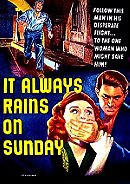
 22
22
 7.6
7.6
 7.2
7.2
